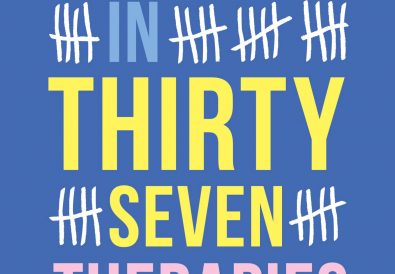Your financial situation is deeply connected with your family history. We are taught by our parents about life. However, we didn’t learn our lessons about money from them the way we learned our lessons at school. Instead we absorbed the lessons: everything we saw, heard, and felt from a very young age stuck with us. Perhaps you heard yelling and screaming over money, so you learned that you should yell and scream about money as well. Your parents looked grumpy when they paid the bills, and now you look grumpy when you pay yours. What we don’t realize is that every behavior, both good and bad, comes primarily from the learned behaviors we witnessed as young children. Without being conscious of why we do what we do, we can’t change what we do. And sometimes we have to go far back in our family trees to find the roots of our financial issues.
Your Grandparents
If we’re influenced by our parents, it’s not hard to guess where they learned their behaviors and attitudes toward money: their parents! If you truly want to understand the intricacies of your relationship with money, my advice is to seek out both sets of grandparents. Our parents give us just a piece of the whole puzzle. But they had four very different people influencing them, both in their childhoods and, in many cases, early in their marriages. Surprisingly, most of us don’t bother to ask our parents, let alone our grandparents, about their childhoods, their struggles, or their successes. We may just know their occupations—that they were teachers, policemen, engineers, doctors, or lawyers—but we don’t know who they really are. We rarely dig deeper to find out what motivated them when they were young, how they felt about things—namely, what they were most proud of or what they worried about.
Without us consciously knowing it, our deepest fears are in fact our grandparents’ fears. Unless we examine what they experienced closely and come to terms with their experiences, we can’t really know why we believe what we do regarding money. If your grandparents have passed away, I suggest reading general histories of their eras or asking some of their contemporaries—perhaps aged aunts and uncles— what they were like and how they survived during difficult times. I researched my own grandparents and discovered a treasure trove. It wasn’t a coincidence that I followed my father into business. One of my grandfathers was also a very successful businessman and died at forty-two, but in my research I discovered he was more of a “gambler.” He used to buy ships full of merchandise and fish with cash and then turn around and sell them for a massive profit.
While he was successful and made money happily this way, his son—my father—wanted to be seen as a legitimate businessman and wanted to be respected by his peers, so he went into accounting and finance. So much of my father’s personality and relationship with money makes more sense in light of this information about my grandfather’s past. Very often we don’t realize the extent to which our relationships with money are connected with our grandparents and consequently our parents. Coming to terms with this can be powerfully transformative. Once we know why we think the way we do about money, we can begin to heal and change.
Siblings and Close Friends
Parents and grandparents are not the only ones who impact the way we unconsciously see the world. Our siblings, friends, and larger peer group also influence our behaviors and beliefs. I once had a classmate who taught me the bad habit of buying junk food after school. He was somewhat of a rebel. Buying food after school without our parents’ permission was strictly forbidden, and because it was, it was all the more fun! I wouldn’t have thought to do that on my own, but friends can hold powerful sway over what we deem cool, fun, or worth our time and money. We watch everyone around us during these formative years, pick up others’ habits, and layer them into our own.
By the time we’re young adults, we’re carrying a lot of messed-up beliefs, behaviors, and attitudes about money, and we have little awareness about how much we truly can take control of them. We don’t realize just how much damage has been done to us, and unless we seek ways to heal the damage, we will remain a mess—and so will our finances.
Money and happiness expert Ken Honda is a best-selling self-development author in Japan, with book sales surpassing seven million copies since 2001. His latest book is called Happy Money: The Japanese Art of Making Peace with Your Money (June 4, 2019, Simon & Schuster). Learn more at KenHonda.com.




















